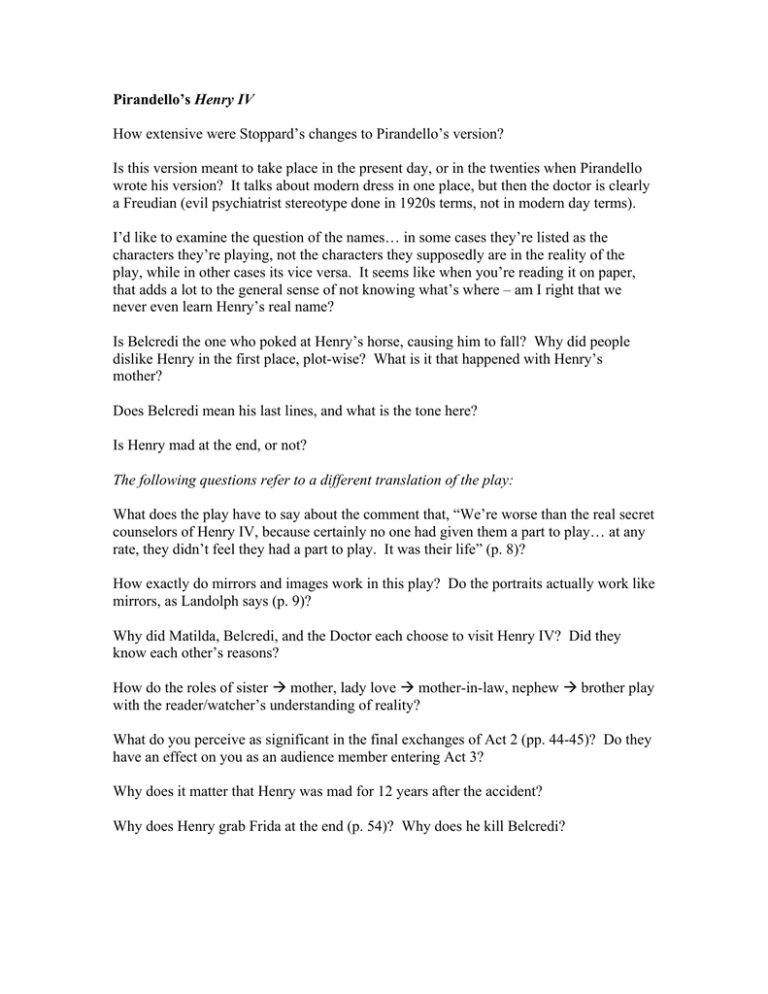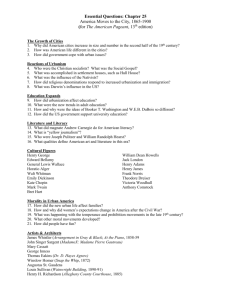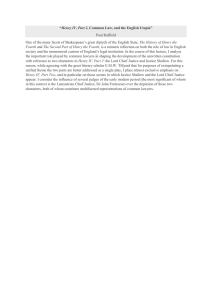Henry IV How extensive were Stoppard’s changes to Pirandello’s version?
advertisement

Pirandello’s Henry IV How extensive were Stoppard’s changes to Pirandello’s version? Is this version meant to take place in the present day, or in the twenties when Pirandello wrote his version? It talks about modern dress in one place, but then the doctor is clearly a Freudian (evil psychiatrist stereotype done in 1920s terms, not in modern day terms). I’d like to examine the question of the names… in some cases they’re listed as the characters they’re playing, not the characters they supposedly are in the reality of the play, while in other cases its vice versa. It seems like when you’re reading it on paper, that adds a lot to the general sense of not knowing what’s where – am I right that we never even learn Henry’s real name? Is Belcredi the one who poked at Henry’s horse, causing him to fall? Why did people dislike Henry in the first place, plot-wise? What is it that happened with Henry’s mother? Does Belcredi mean his last lines, and what is the tone here? Is Henry mad at the end, or not? The following questions refer to a different translation of the play: What does the play have to say about the comment that, “We’re worse than the real secret counselors of Henry IV, because certainly no one had given them a part to play… at any rate, they didn’t feel they had a part to play. It was their life” (p. 8)? How exactly do mirrors and images work in this play? Do the portraits actually work like mirrors, as Landolph says (p. 9)? Why did Matilda, Belcredi, and the Doctor each choose to visit Henry IV? Did they know each other’s reasons? How do the roles of sister Æ mother, lady love Æ mother-in-law, nephew Æ brother play with the reader/watcher’s understanding of reality? What do you perceive as significant in the final exchanges of Act 2 (pp. 44-45)? Do they have an effect on you as an audience member entering Act 3? Why does it matter that Henry was mad for 12 years after the accident? Why does Henry grab Frida at the end (p. 54)? Why does he kill Belcredi? How does the play make you rethink your ideas about time? How does this connect with the use of historical figures? How does this connect with the question of acting and agency? How do the various meanings of “acting” come into play, and relate (or not)? Some names to provide context: Friedrich Nietzsche, Henri Bergson, Marcel Proust.





